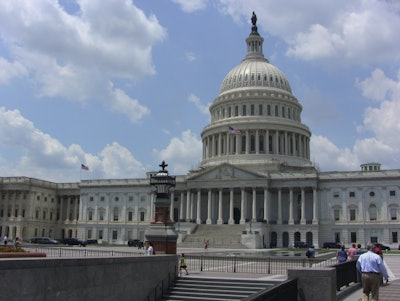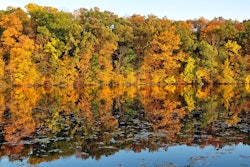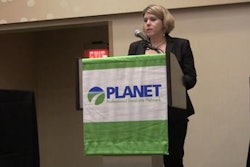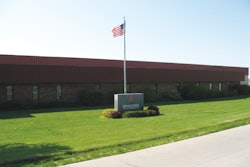
Dozens of Green Industry suppliers and landscape contractors converged on Capitol Hill as part of PLANET’s annual Legislative Day on the Hill event. Green Industry Pros met with legislators in both the House and Senate to discuss pressing issues which the Green Industry is facing.
Background on NPDES. One such issue is the controversy over National Pollutant Discharge Elimination System (NPDES) permits. The NPDES permitting program, including specific permit requirements, is the result of 1) enactment of laws by Congress and development, and 2) implementation of federal regulations based on the authorities vested to EPA through those laws. The Clean Water Act is one such law. The CWA was enacted by Congress and signed by the President that establishes environmental programs, including the NPDES program, to protect the Nation's waters and directs EPA to develop, implement and enforce regulations consistent with this law.
On October 31, 2011, EPA issued a final NPDES Pesticide General Permit (PGP) for point-source discharges from the application of pesticides to waters of the United States. This action was in response to a 2009 decision by the U.S. Sixth Circuit Court of Appeals (National Cotton Council, et al. v. EPA) in which the court vacated EPA's 2006 Final Rule on Aquatic Pesticides and found that point-source discharges of biological pesticides, and chemical pesticides that leave a residue, into waters of the U.S. were pollutants under the Clean Water Act (CWA). As a result of the court's decision, NPDES permits are generally required for these types of discharges as of October 31, 2011.
“NPDES permits are basically the Clean Water Act permits that would regulate a factory,” says Laurie-Ann Flanagan, a PLANET lobbyist with D.C. Legislative & Regulatory Services Inc. “Based on a court decision, EPA and states are requiring that pesticide applications to water, over water or near water also require these permits. This makes no sense. But EPA was put into a corner based on a lawsuit and court decision—and we’re living with the consequences.”
Watch a video of Flanagan speaking to the PLANET audience to hear more about how NPDES permits adversely affect lawn care contractors.
The EPA’s final permit covers operators that apply pesticides that result in discharges from the following use patterns:
- mosquito and other flying insect pest control
- weed and algae control
- animal pest control
- forest canopy pest control
How this affects the Green Industry. According to a PLANET issue briefing, The new NPDES permits add a great deal of costly paperwork and reporting requirements for certain pesticide applications—without providing any additional environmental protection. Furthermore, PLANET members are worried about the liability the permits create, leaving them vulnerable to lawsuits under the Clean Water Act. Finally, permit requirements vary from state to state, causing confusion for lawn care providers that operate in multiple states.
PLANET has been urging the Senate to pass a bill similar to H.R. 872, the Reducing Regulatory Burdens Act of 2011—either as part of freestanding legislation, or perhaps as part of another piece of legislation such as a farm bill conference report.
How, where is this in play? The pesticide general permit requires operators to minimize pesticide discharges through the use of pest management measures and monitor for and report any adverse incidents. Some permittees are also required to submit NOIs (notice of intent) prior to beginning to discharge and implement integrated pest management (IPM)-like practices. Record-keeping and reporting requirements will provide valuable information to EPA and the public regarding where, when and how much pesticides are being discharged to waters of the U.S. Pesticide application use patterns not covered by EPA’s Pesticide General Permit may need to obtain coverage under an individual permit or alternative general permit if they result in point source discharges to waters of the U.S.
This general permit will provide coverage for discharges in the areas where EPA is the NPDES permitting authority, which include six states (Alaska, Idaho, Massachusetts, New Hampshire, New Mexico and Oklahoma), Washington, D.C., most U.S. territories and Indian country lands, and many federal facilities (for details, click here (PDF). In the remaining 44 states (and the Virgin Islands), the states are authorized to develop and issue the NPDES pesticide permits. Dischargers in areas not covered under EPA should contact their state environmental regulatory agency for more information on applicable permit requirements. A directory of state agencies for NPDES pesticide permits is available at: www.epa.gov/npdes/pesticides/statecontacts.

![Doosan Bobcat Wacker Neuson Stack 2ec Js Pb V6e[1]](https://img.greenindustrypros.com/mindful/acbm/workspaces/default/uploads/2025/12/doosan-bobcat-wacker-neuson-stack2ecjspbv6e1.CPyyz8ubHn.png?auto=format%2Ccompress&bg=fff&fill-color=fff&fit=fill&h=100&q=70&w=100)








![Doosan Bobcat Wacker Neuson Stack 2ec Js Pb V6e[1]](https://img.greenindustrypros.com/mindful/acbm/workspaces/default/uploads/2025/12/doosan-bobcat-wacker-neuson-stack2ecjspbv6e1.CPyyz8ubHn.png?ar=16%3A9&auto=format%2Ccompress&bg=fff&fill-color=fff&fit=fill&h=135&q=70&w=240)








